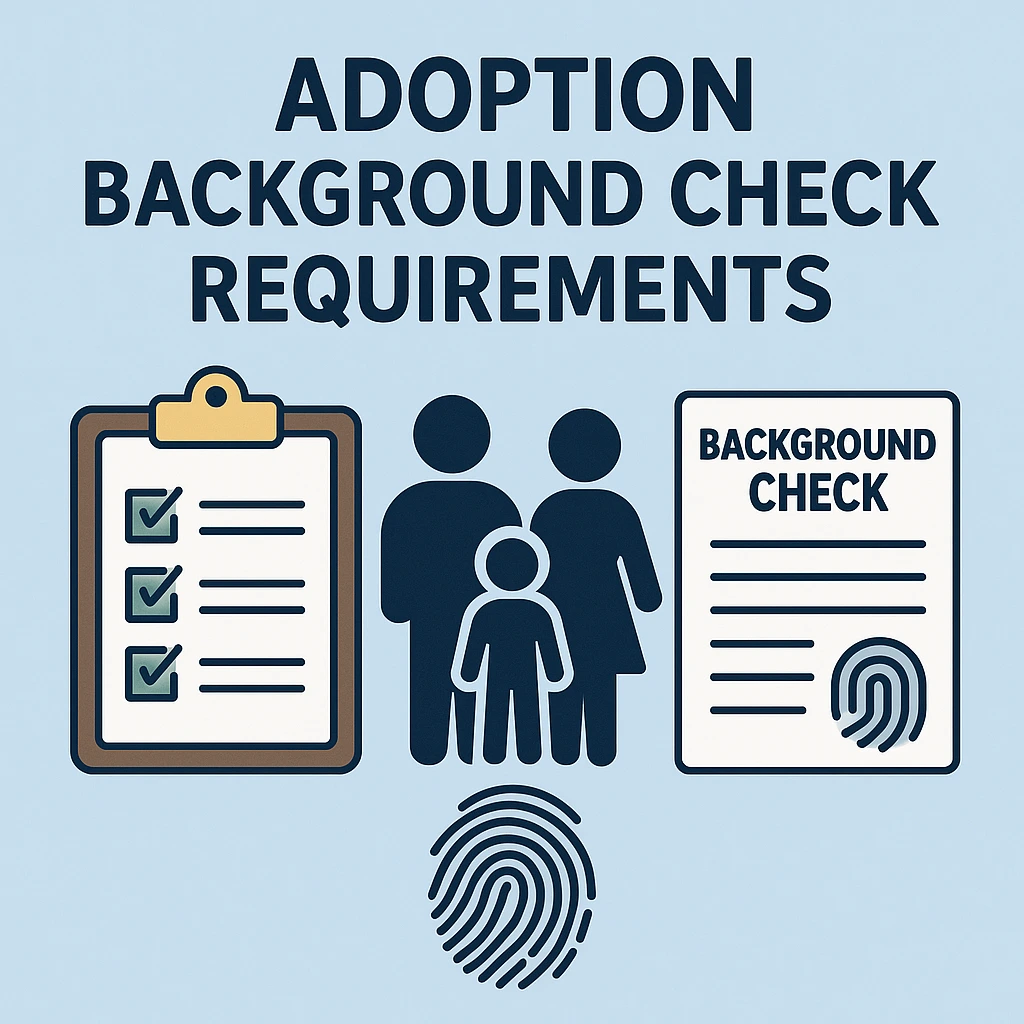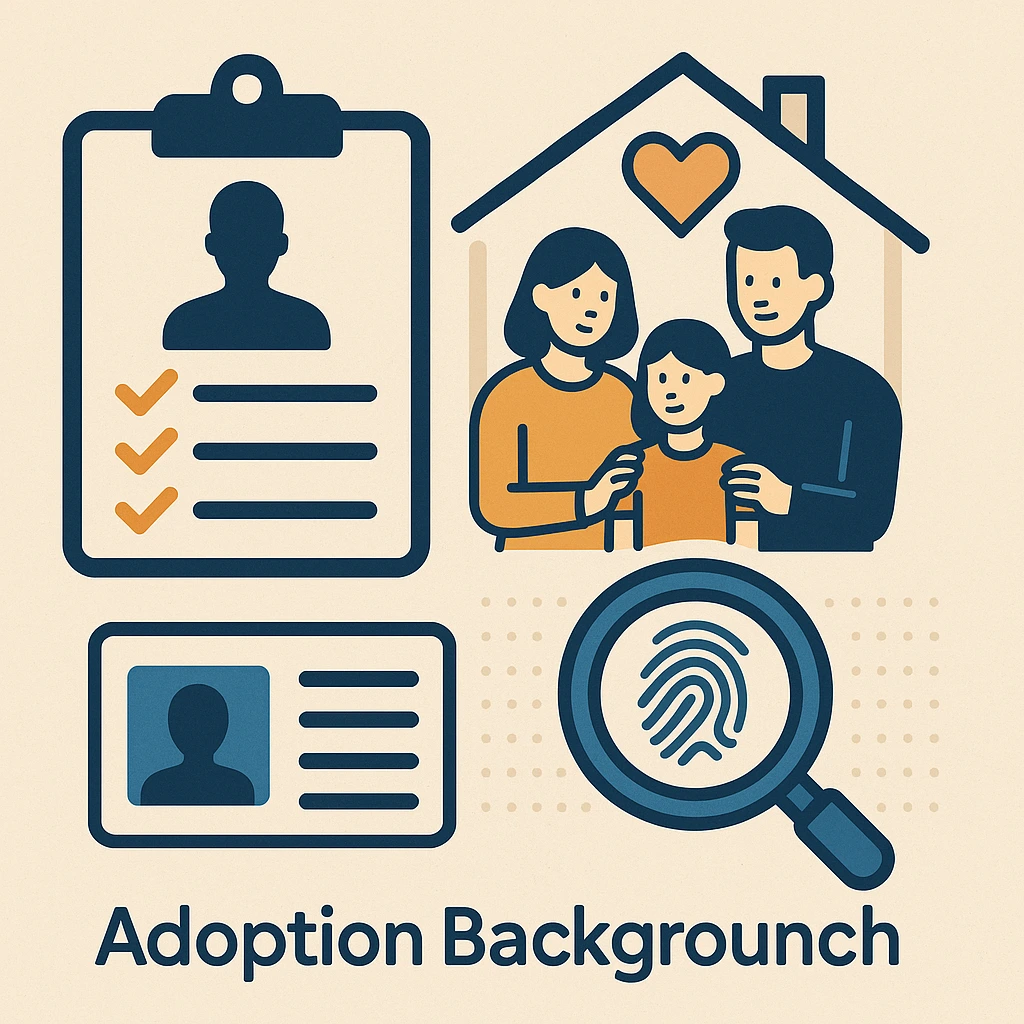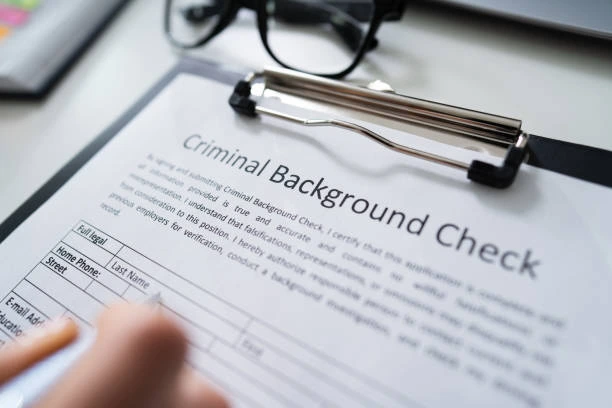Adoption Background Check Requirements: 11 Best Steps To Succeed

Are you contemplating growing your family through adoption? That’s nice. While the journey to parenthood is full of excitement and anticipation, crossing the sea of adoption background check requirements can feel insurmountable.
Every year, countless of hopeful parents become very confused about different state regulations, federal mandates, and agency-specific policies that regulate this crucial step in the adoption process. Understanding what these adoption background check requirements are is not just about clearing a hurdle, but about providing a safe, loving home for children who need them.
In today’s post, we will be taking a look at adoption background check requirements, from fingerprinting procedures to international adoption considerations. This will you approach this important part of the adoption journey with boldness and clarity. This is what you want, isn’t it? You are on the right track.
Understanding the Basics of Adoption Background Checks:
The moment you think about going through the adoption process, a home study becomes one of the first steps to take, and knowing the background check requirements also becomes crucial. These checks are a crucial part of the adoption process because they help to ensure that the child is placed in a safe and stable home.
Adoption background checks requirements are far beyond simply screenings you might face for employment; they include a comprehensive investigation into your personal history, living situation, and character. The adoption home study process involves so many types of background checks, like criminal history checks at both local, state, and federal levels.
Child abuse registry checks help to ensure that prospective adoptive parents have no history of child maltreatment. Sex offender registry screenings are also important components of adoption home study that agencies use to verify a safe environment for adopted children.
Many adoptive parents worry about minor challenges in the past.
Meanwhile, adoption agencies understand that nobody is above mistakes, and that’s why most background check issues focus on serious matters that might affect a child’s well-being and safety. So, just having a speeding ticket from 10 years ago won’t likely stop you from adopting a child. However, a recent DUI or violent offense might be a significant hurdle for you.
Federal Adoption Background Checks Requirements:
Every government has established baseline standards regarding the adoption of background check requirements that are applied in all states. The Adam Walsh Child Protection and Safety Act requires that you have a fingerprint-based check or a national crime information database before you proceed to adopt a baby.
This promulgation helps to ensure very consistent safety standards for the general nation. The Interstate Compact on the Placement of Children (ICPC) regulates adoption across state lines, so when adopting from another state, you will need to comply with requirements from both your home state and the child’s state. This sometimes leads to duplicate checks or additional paperwork, but it’s all about safeguarding the adoption system.
For international adoptions, you will be required by the federal to get FBI fingerprint clearances and checks against different international criminal databases. The U.S. Citizenship and Immigration Services (USCIS) will require these checks as part of the immigration process for the child. Additionally, you will need to meet certain requirements of the adoptive child’s home country, which may vary tremendously.
State-by-State Variations in Adoption Background Requirements:
One thing that causes great confusion about adoption background check requirements is always how much they can vary from state to state. Some states have very strict background check requirements than federal minimums, while others follow basic standards. For example, in New York alone, it is required for all household members over 18, while some states check the actual adoptive parents.
Many states have different policies about which offenses might thwart your adoption journey. In some states, certain criminal convictions create stronger barriers to adoption. In others, the same offenses might be assessed on a case-by-case basis when you consider factors like how long the offense occurred and evidence of rehabilitation.
The actual processing time for background check requirements also differs widely by state. Inefficient states, results might come back in a couple of weeks. In other states, that wait time can be longer than several months. This unpredictability can be overwhelming for you, but when you understand your state’s typical timeline it will help you set realistic expectations for your adoption journey.
The Home Study Process and Background Checks:
The home study encompasses the most comprehensive part of the adoption screening process. During this assessment, a social worker will evaluate your readiness for parenting and verify your background extensively.
The home study also includes interviews, home visits, and a review of all your adoption background check requirements results. The social worker working with you will discuss all the concerning findings from your background checks during the home study.
This provides opportunities for you to explain any challenges and provide context too. Being honest from the beginning is important as later discoveries of dishonesty can derail your adoption instantly. Many adoption professionals say they are very much more concerned about dishonesty than about other minor issues in someone’s past.
The home study report will summarize all the findings including background check requirements results. This report will become part of your adoption file and follow you throughout the adoption process. Agencies and courts also use this report when making placement decisions. A well-done background check will contribute extensively to a positive home study outcome.
Fingerprinting Procedures for Adoption Background Checks:
Fingerprinting is the foundation of almost all background checks. Nowadays, the adoption of fingerprinting uses digital scanning instead of the usual ink prints. The process is clean and typically takes just a few minutes per person. Most communities have structured fingerprint locations, mostly at police stations, post offices, or any other specialized fingerprinting services.
After your fingerprints are collected, they will be submitted to the FBI’s national database for comparison. The checks will reveal any criminal history from all the states, not just where you reside. The FBI fingerprint check is particularly crucial because it dictates the offenses in state-level searches. In some fingerprint locations, you may need to book an appointment before going, while others accept walk-ins.
The fee for the FBI fingerprint checks is around $50 to $75 per person, although costs vary by location. Your adoption agency can usually direct you to approved fingerprinting facilities in your area and advise on current fees and procedures.
Child Abuse and Neglect Registry Checks:
Child abuse registry checks verify whether you have been reported for child neglect or abuse. These checks are done through each state’s child welfare agencies, and they are different from criminal records, which are fairly standardized, and child welfare exists in separate databases for each state. This makes the processes more complex.
If you have lived in different states, likely, the child abuse registry from each of the states of residence checks you. Some states will want to conduct their checks going back many years, while others look at your entire adult life. Each state has its unique ways of requesting these checks, with some offering online applications while others just require paper forms.
False reports are sometimes seen on these registries which can truncate the adoption process. So, if you discover any incorrect record, you can appeal through the state’s appeal processes.
However, these can take a long time and may delay your adoption process. However, any experienced adoption attorney can help you with any issues you encounter through the registry checks.
International Adoption Background Check Requirements And Considerations:

If you choose international adoption, you will encounter layers of complexity to background check requirements. You must satisfy both U.S. requirements and the child’s country of origin background requirements. Many countries have background check systems that won’t align with that of America.
This, therefore, means duplicate checks and additional documentation for you. You may also encounter needs for translation and authentication of background check documents in international adoptions. Official translations and apostilles may also be required. These extra steps will likely add time and more expenses to your adoption process, but be sure that all countries involved have the information they need.
The Hague Adoption Convention countries have standardized procedures which make the process somewhat more dependable. Non-Hague countries may have less transparent adoption background check requirements that can even change unexpectedly. Working with an adoption agency that is experienced in the country you are adopting from will provide valuable guidance through these complexities.
The Timeline: How Long Do Adoption Background Checks Take?
After you have submitted all your adoption check requirements, the check process will take one or three months, though it varies widely by state. FBI fingerprint checks last for about 2-6 weeks, and State criminal history checks can be faster or slower depending on the state’s current backlog or systems.
Child abuse registry checks take the longest and know that if you need checks from different states, they will even be longer. Some states will process your request quickly, while others may take so many months. International checks add even more variability to the timeline and it can stretch to six months or longer.
Many things can delay your background checks, including incorrect information and name similarities, which can also cause false matches or backlogs in the processing systems. Planning ahead for these delays will help you navigate the frustrations.
It would also be nice if you could submit the adoption background check requirements on time to start the checks earlier and prevent these delays from affecting your overall timeline.






